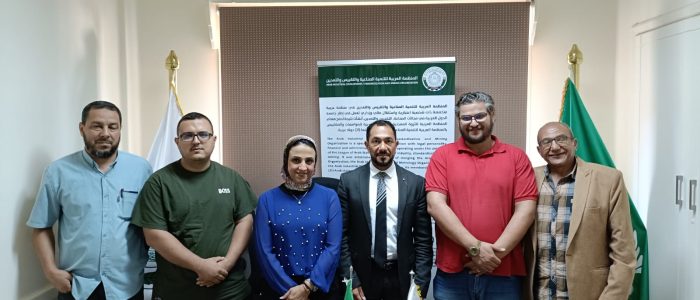The training course on “Greenhouse Gases – Characteristics and Guidelines for Quantitative Measurement of Facilities According to ISO 14064-1” concluded on Wednesday, July 23, 2025. Held in Cairo from July 20-23, 2025, the course was attended by participants from the following Arab countries: the Arab Republic of Egypt, Libya, representing the Saudi Egyptian Company for Salts and Minerals (SECO SALT), and the Libyan Iron and Steel Company.
The training course was led by Dr. Mohamed Abdel Moneim, a consultant and investigator for carbon footprint and life cycle assessment of products.
The four-day course covered several topics related to the scope of measurement: “Defining the three scopes of emissions (Scope 1, 2, and 3) and how to define them; and how to set regulatory limits.” Geographical Measurement – Data Collection: Strategies for collecting data needed to measure carbon footprints, data collection tools and techniques, including the use of modern technology – Data Analysis: How to analyze data extracted from emissions measurements, using mathematical and statistical models to estimate emissions – Reporting: How to prepare carbon footprint reports according to ISO 14064-1 requirements, the importance of transparency and accuracy in reporting – Verification and Assurance: Verification and Assurance methodologies to ensure data accuracy, the role of third parties in the verification process – Identifying Improvement Opportunities: How to use measurement results to identify opportunities for sustainable improvement, emission reduction strategies based on the extracted data, Challenges and Solutions: Discussing common challenges facing organizations in implementing ISO 14064-1, sharing innovative solutions and successful experiences – Future Trends: Discussing future trends in carbon footprint measurement and environmental legislation, and the impact of climate change on organizational strategies. The expert also provided participants with practical applications on the course topics.

